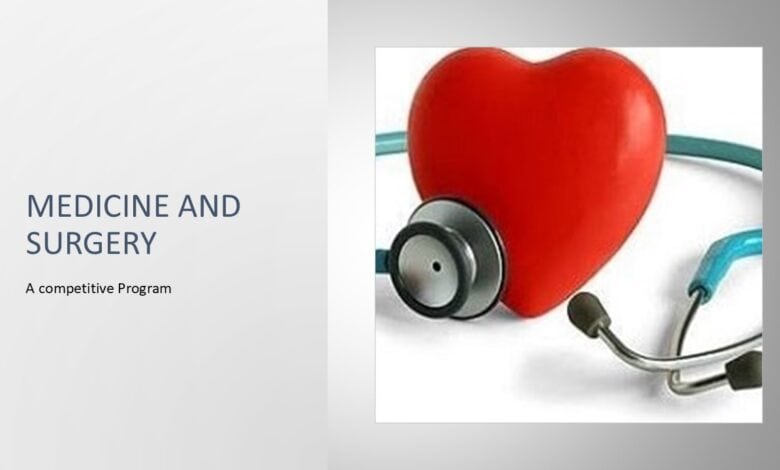Why Medicine Is Competitive In Nigeria

There is always a reason behind everything that looks challenging. Finding the reason(s) is the first step to overcoming it. I have discovered that nearly 60% of science students in senior secondary school 3 in Nigeria want to study medicine. If you will affirm my claims, ask ten students in SS3 and in science class what they want to study. You will be amazed that at least 6 of 10 will tell you medicine. The prestige and respect people accord those studying this course are reasons why people want to study it.
For example, medical students were treated better while undergoing my National Youth Service Corps (NYSC). Their allowances from federal and state governments and their accommodations differed from others. This is to emphasize the respect people give to those who studied this course. They deserved it because the rigor and training they underwent while in school was enough to celebrate and respect them. This is not in any way to demean other courses.
The number of students who choose this course yearly in JAMB is always high because of respect, prestige, earning power, and possibly societal influence. And the admission formula has always been that the higher the number of applications, the higher the competition. So, in the next paragraph, I will shed more light on why the course is competitive.
It attracts the best brains
Most of the best students in various schools nationwide want to study this course. When I was in secondary school more than 20 years ago, most in the top 5 percentile wished to study this course. Most of them, if not all, are now medical doctors. Seun Morawo is a perfect example; he even wrote an article on his journey in medical school. Now imagine my secondary school, Wesley College Elekuro, is just one school out of many schools in Nigeria.
According to a source, there are about twenty-seven thousand (27,000) secondary schools in Nigeria. Let’s do a simple mathematics: if five students from each school want to study medicine, the total number of prospective students will be 135000. The country has roughly 125 universities that offer MBBS, and the capacity of each school can be 300 at maximum. So, 125 multiplied by 300 is 37500. This number is far less than the total number of prospective students. With this calculation, it is evident that each university will have to raise its cut-off mark to ensure it stays within its quota. This is why smart and intelligent students are admitted to study the course. For instance, the latest minimum score for medicine in UI is 78.12%. To meet up with this, you must at least score a minimum of 280 in UTME and 90 in PUTME.
The stakes are high
This is a field that deals directly with life. And anything that deals with life has a high risk. Because of the risks involved, any random person should not be entrusted with such a job. You must be compassionate, hardworking, intelligent, innovative, and creative. These four qualities can only be measured at the secondary school through your O’level results and UTME score. At least your results should show how passionate you are with your study. Someone who doesn’t take their academics seriously can’t do well in any exam. At best, the performance of such students will be average. Due to how delicate the course is, and the level of seriousness and intelligence required have set the bar high. And since the bar is high, the level of competition will be high.
Job Prospect
People prefer to go for a course with a job prospect. What is the essence of studying a course when you are struggling to find where you can work? Unlike other courses, the probability of getting a job after completing the program is high. There are a good number of federal, state, and private hospitals in need of young doctors. Also, you have the privilege of starting a clinic if you have obtained the license and you have the finances. This is why it is rare to see a jobless doctor. Although the pay may not look attractive, you can’t be without a job with an “okay” pay.
